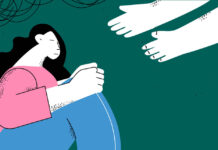Paradigm Shift
An important study was headlined on MIA this week. The study examined the effectiveness of cognitive behavioral therapy (CBT) to treat the symptoms of people labeled with a diagnosis of schizophrenia and related conditions who had elected to not take neuroleptic drugs.
A Deeper Dive into System Change in the Mental Health Paradigm
For the past several years, my blogs have centered on how policy can affect practice, especially in public mental health systems. But I haven't taken a deeper dive into strategies, especially focused for advocates who seek significant and even radical changes. I think it's now time.
Depression: Biological or Psychological?
Scientific evidence tells us that depression is psychological and should be treated by behavior therapy, not by antidepressant drugs.
Irish Psychiatry Says Chemical Imbalance Is a Figure of Speech—So, What Now?
Don’t researchers and clinicians have an ethical responsibility to inform the public that the "chemical imbalance" story is false?
Mis- (and Dis-) Information about UN Disability Convention
The November 5 hearing on the UN Convention on the Rights of Persons with Disabilities in the Senate Committee on Foreign Relations reached new heights of absurdity and opens new ground for concern. It may be worse for us to ratify with the reservations, understandings and declarations (RUDs) being proposed, and with the legislative record that is being created for the specific purpose of rejecting any application of the treaty's standards to US law than not to ratify at all. All the proponents of CRPD ratification who are allowed a voice in these discussions are in agreement that the US ratification is aimed ONLY at giving the US greater influence over other countries and over the development of customary international law, and NOT at improving the enjoyment of human rights by persons with disabilities in the US itself.
Falling Through the Cracks
I am an award-winning singer/songwriter with a number one record to my credit. I also owned several small businesses and founded a 501c3 non-profit for women's health. I ate healthy, swam and cycled every day and had a very active lifestyle. This was before benzos came into my life.
Psychiatry Through the Lens of Institutional Corruption
When you write a book, you usually do so in response to a prompt of some type, and in the process of researching and writing the book, you will come to see your subject in a new way. Psychiatry Under the Influence, a book I co-wrote with Lisa Cosgrove, provided that learning experience, and this is what I now know, with a much greater certainty than before: Our citizenry must develop a clear and cogent response to a medical specialty that, over the past 35 years, has displayed an “institutional corruption” that has done great injury to our society. In fact, I think this is one of the great political challenges of our times.
Sick‘s Wild Ride – From Treatment to TEDMED
Earlier this year, I was invited to speak at TEDMED 2014 and John Kazanjian and I worked hard to come up with a 13-ish minute version of my play Sick. The video of the talk/performance got released today on TEDMED.com and YouTube. It’s been a wild ride sharing the big play with small audiences around the country these last couple of years, and I am excited and humbled by the potential audience this abbreviated version can have online. I hope you have a chance to watch it.
The Torture in Treatment
In psychiatric hospitals we have set up the same environment as the Stanford Prison Experiment, but without a professor watching who has the authority to shut it down when things go horribly wrong. As a patient, there wasn’t any protection from the inescapable abuse of limitless power.
The Problems of Non-Consensual Reality
In a couple of weeks, I may see some of you at the MIA Film Festival. I am honored to be on a panel called “Re-Thinking Psychiatry” with two esteemed colleagues. In advance of the festival, I decided to write about what has been most central in my own “re-thinking”: my basic understanding of psychosis - when a person does not share consensual reality. It has been a fundamental re-think: how do we define it? how do we understand it? when do we intervene? how do we intervene?
Critical Psychiatry Textbook, Chapter 16: Is There Any Future for Psychiatry? (Part Three)
Psychiatry forcefully maintains its delusions, even when the most reliable science has shown that their beliefs are wrong.
Wholesome Wave
In a recent blog, we talked about the fact that nutrition and poverty are linked, and how poor nutrition is likely a mediator variable in the relationship between poverty and illness. In other words, it is the suboptimal nutrition associated with low income which likely explains much of the vulnerability to mental and physical illness. Today we want to tell you about an amazing American program that is making great strides in addressing this issue.
Forced Treatment Ineffective: Advocacy Essential
Most Americans would agree that we have problem with mental health in this country, but what many do not know when they consider that people who are in distress are not getting the help they need is that hospitals in this country are not giving people a choice when they are in the most need. This is based on laws that currently exist in 45 US States, which allow individuals to be petitioned into an inpatient psychiatric unit against their will if they are deemed to be a “danger to themselves or others.” I have worked for 3.5 years as a Peer Support Specialist within my local public mental health system, where I see this happen to the individuals I serve, on a regular basis. I myself have been forced.
Life, Unarmed
When I was born, everyone was expecting me to have arms. The doctor's mind raced; how am I going to tell this mother and the father that their son has hands but not arms? If he's missing so much in his extremities, mustn’t he also be missing a mind? My mom looked into my eyes and knew - in a way that only mothers know - that I had a mind, and spirit.
Psychiatric Teams Have a Responsibility to Think About the Psychosis/Sexual Abuse Link
In England, childhood sexual abuse (CSA) has become big news. The increasing understanding of the level of childhood sexual abuse and how this produces mental anguish has of course reached the psychosis arena, and encouraged academic study. Whilst the majority of psychiatrists continue to privilege a biological explanation of psychosis, more and more workers recognise abuse as at least a trigger if not a cause of psychosis. It's important to develop thinking points for teams struggling with, or more generally avoiding, the CSA/psychosis link.
A CALL TO ACTION: The Murphy Bill Passed the E&C Committee but the Fight Is...
As you read this, people with lived experience all around the country are mobilizing to educate our federal legislators about why the Helping Families in Mental Health Crisis Act (H.R. 2646) should be defeated. Education is the key. As executive director of the National Coalition for Mental Health Recovery, I am issuing a call to action. We need to ramp up our efforts before this backward piece of legislation becomes law. We need to get in touch with our legislators and their staffs, contact the media, make some noise! We need to exercise the proverbial strength in numbers. And we need all of this now!
Original Soteria House Members to Speak!
Soteria House’s history is complex and fascinating. Soteria Houses have never had the support they needed, but they still managed to change so many lives.
A Developmental Response to Trauma and Trauma Language
Understanding life events (and/or our responses to them) as trauma has transformed how we suffer and how we relate to pain.
Shock Class Action – Case Update
In September of 2017, DK Law Group, LLP filed a Class Action Complaint against the manufacturers of ECT shock devices, alleging that they caused injury to patients by withholding from the FDA data relating to serious iatrogenic brain injuries resulting from ECT. The following developments have taken place since then.
What Would a Trauma-Informed Society Look Like?
Imagine if we, as a society, started recognizing trauma, pain, grief, fear, the need for connection and understanding, and oppression without defensiveness or denial. What if, hypothetically, we saw the signs in people who were "defiant," "withdrawn," "oppositional," "depressed," "manic," or otherwise as desperate pleas to have their needs met, and stopped telling them they were sick for doing so? What would a society that actually encouraged expression of emotion, compassion, and empathy look like?
Ernst Rüdin’s Unpublished Family Study of “Manic-Depressive Insanity” and the Genetics of Bipolar Disorder
Although it is axiomatic in psychiatry that genetic factors are involved in bipolar disorder (manic-depression), and that they play a predominant role, there currently exists little if any scientifically acceptable evidence that bipolar disorder and other “affective disorders” are caused by disordered genes. Given almost 50 years of gene discovery claims that were not confirmed by replication attempts, we must assume by default that current gene finding claims are false-positive results as well. In the 1920s, pioneering psychiatric geneticist Ernst Rüdin decided against publishing his large family study of “manic-depressive insanity,” most likely because the results did not fit his theories of Mendelian inheritance, and failed to support his advocacy of eugenic policies.
Fernando de Freitas: A “Dear Friend” Who Was a Warrior for Radical Change
Fernando de Freitas, co-founder of Mad in Brasil, passed away January 30. He had devoted his professional life to seeking to transform psychiatric care in Brazil and beyond.
My “Head in a Bucket” Metaphor
“How could I not have known?” This question has been asked of me, as a psychiatrist, with regard to prescribing psychiatric drugs. All those...
Teenagers on SSRIs
Last week, the Wall Street Journal has an article titled The Medication Generation by Katherine Sharpe which questioned the fact that a large number of teenagers are...
On Religious and Psychiatric Atheism: The Success of Epicurus, the Failure of Thomas Szasz
When the American psychiatrist Thomas Szasz killed himself a year and a half ago at the age of 92, I thought there would be a global outpouring in psychiatric circles of sympathy or scorn. Instead, his death was largely met with silence, a silence as deafening as the one that attended the second half of his long, prolific, and polemical career. Szasz’ name didn’t show up at all in the APA program last year, and this presentation of mine is apparently the only one to mention him this year. This silent treatment has, ironically enough, and surely against his will, forced him to fulfill the ancient Epicurean ambition to live and die unnoticed.




















